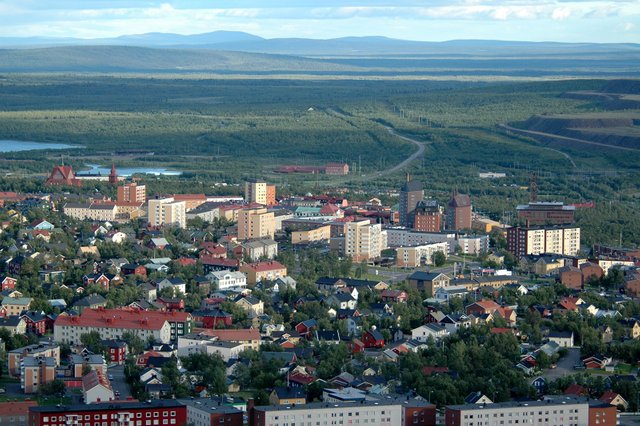
Kiruna is the northernmost town in Sweden, located in the province of Lapland. It sits within the Arctic Circle and is known for its stunning natural beauty, including the nearby mountains, vast forests, and proximity to the Abisko National Park, a popular destination for hikers and nature lovers.
Kiruna's origins are tied to the iron ore industry, which has been the backbone of its economy since the late 19th century. The town was established in 1900 to support the mining operations of LKAB (Luossavaara-Kiirunavaara AB), one of the world's largest iron ore producers. Kiruna’s mine is among the largest underground iron ore mines globally, and it has played a significant role in Sweden’s industrial development.
One of the most striking aspects of Kiruna is its ongoing relocation. Due to subsidence caused by the expansion of the iron ore mine, large parts of the town are being moved several kilometers east. This relocation includes homes, businesses, and historical buildings, making it one of the most extensive urban relocation projects in modern history.
Kiruna is also famous for its unique cultural experiences, particularly those related to the Sami people, the indigenous inhabitants of the region. Visitors can learn about Sami traditions, including reindeer herding, handicrafts, and their distinctive way of life.
In addition to its industrial and cultural importance, Kiruna is a gateway to Arctic adventures. The town is a popular destination for viewing the Northern Lights (Aurora Borealis) during winter and experiencing the Midnight Sun in summer. Kiruna also hosts the famous Icehotel in the nearby village of Jukkasjärvi, an architectural marvel built entirely from ice and snow each winter.
With its remote location and striking contrasts between seasons, Kiruna offers a blend of natural beauty, industrial heritage, and indigenous culture, making it a fascinating destination for travelers and a unique place to live.